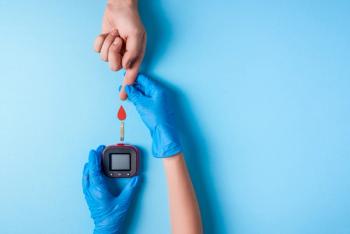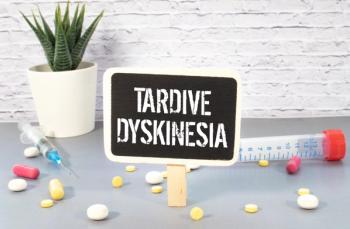
Positive Topline Results for Lumateperone As Adjunctive Therapy for MDD Announced
Two phase 3 clinical trials form the basis of a supplemental New Drug Application for this indication.
Lumateperone (Caplyta) manufacturer Intra-Cellular Therapies has announced positive topline results from a second phase 3 clinical trial evaluating lumateperone as an adjunctive therapy for patients with major depressive disorder.1 Lumateperone is an oral, once-daily atypical antipsychotic medication.
Two phase 3 studies—Study 501 (
In Study 502, investigators randomly assigned 408 patients 1:1 to receive either lumateperone 42 mg plus an antidepressant or placebo plus an antidepressant. At baseline, Montgomery-Åsberg Depression Rating Scale (MADRS) total scores were 30.8 and 31.5 for the lumateperone and placebo groups, respectively.
Lumateperone met the primary study endpoint, “demonstrating a statistically significant and clinically meaningful reduction” in MADRStotal score vs placebo at week 6. In a modified intent-to-treat population, the least squares mean reduction from baseline was 14.7 points in the treatment group, vs 10.2 points in the placebo group (least squares mean difference, -4.5 points; P <.0001). Numerical improvement in MADRS score the treatment group was noted as early as week 1 of the study, with “statistically significant separation starting at week 2” and being maintained throughout.
Investigators also noted statistically significant efficacy in patient-self reported symptom severity of depression, measured with the Quick Inventory of Depressive Symptomatology Self-Report (QIDS-SR) scale.
READ MORE:
The drug also met the study’s key secondary endpoint, demonstrating statistically significant, clinically meaningful reduction in Clinical Global Impression Scale for Severity of Illness (CGI-S) score vs placebo at week 6. Statistically significant separation between the groups was first noted at week 3 and maintained throughout.
Investigators also noted that lumateperone was generally safe and well-tolerated. The most common adverse events included dizziness, somnolence, dry mouth, nausea, diarrhea, and fatigue. These adverse events—“generally similar” to those seen in studies of lumateperone as a treatment for major depressive disorder, schizophrenia, and bipolar depression—were mild to moderate in nature, and resolved over the course of the study.
“We are confident that the efficacy results from Studies 501 and 502, along with the favorable safety and tolerability profiles from these studies, will make lumateperone a drug of choice for patients [living with major depressive disorder] who are having an inadequate response to antidepressant therapy,” said Sharon Mates, PhD, CEO and chairman of Intra-Cellular Therapies.
Major depressive disorder impacts the lives of an estimated 21 million adults in the US each year and is the primary cause of disability globally. Of note, approximately two-thirds of individuals with
Lumateperone is currently FDA approved to treat adults with schizophrenia and to treat depressive episodes associated with bipolar I or bipolar II as both monotherapy and as an adjunctive therapy with lithium or valproate.
READ MORE:
Reference
1. Intra-Cellular Therapies announces positive topline results in second phase 3 trial evaluating lumateperone as adjunctive therapy in patients with major depressive disorder. News release. June 18, 2024. Accessed June 18, 2024. https://ir.intracellulartherapies.com/news-releases/news-release-details/intra-cellular-therapies-announces-positive-topline-results-1
Newsletter
Pharmacy practice is always changing. Stay ahead of the curve with the Drug Topics newsletter and get the latest drug information, industry trends, and patient care tips.























